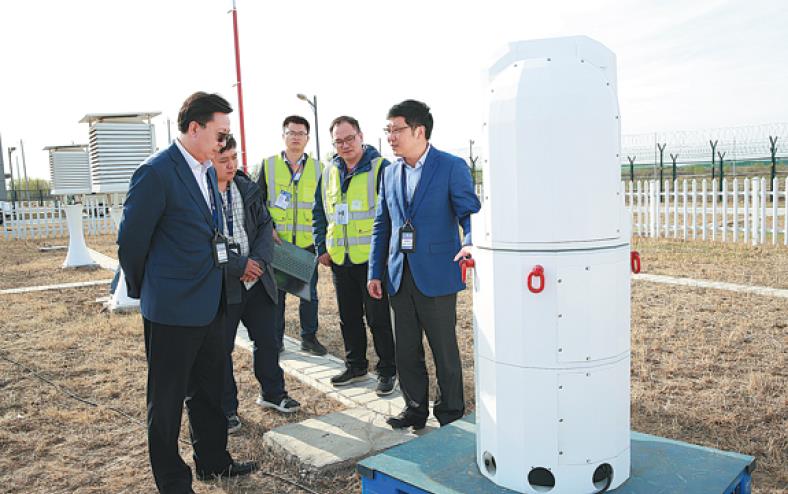Lidar has laserlike focus on aviation security, operations
By ZHU WENQIAN | China Daily | Updated: 2021-05-20 10:08

China has self-developed an enhanced long-range aviation safety lidar detection system. The device began trial operations at the Beijing Daxing International Airport in late March and has performed admirably. It is awaiting a commercial license from the Civil Aviation Administration of China.
Compared with current lidar (a light detection and ranging system akin to radar) systems made by Mitsubishi Electric Corp of Japan in operation at Daxing, the latest Chinese independently developed product by Beijing ZKYA Technology Co Ltd has 10 times higher resolution.
With its optical remote sensing technology, the lidar can detect wind profiles up to 15 kilometers vertically and 30 km horizontally. This is the farthest distance that a Chinese-made lidar can detect and is suitable for providing aviation safety at major international airports.
Taking advantage of high temporal and spatial resolutions, the lidar can monitor real-time wind shear near airports, which is critical to enhance safety and raise efficiency and stability during aircraft takeoffs and landings. Wind turbulence and wind shear are invisible hazards that can affect nearly all airports.
"Safety is the priority for the development of all industries, and lidar is expected to help guarantee safe operations. There is rigid demand for such equipment, and I'm bullish on its growth potential," said Xia Haiyun, chief scientist at Beijing ZKYA and a professor at the University of Science and Technology of China.
Meanwhile, the lidar can help accurately detect and track bird concentrations and their flying speed around airports in different weather conditions, thus helping avoid potential bird strikes.
In addition, the lidar is undergoing trial operations at the Hefei Xinqiao International Airport in Anhui province and the Wuyishan Airport in Fujian province. Operating lidar systems at airports involves proper laser safety practices. After theoretical calculations, the lidar has been confirmed to be safe for human eyes when it is scanning, the company said.
"Now, different kinds of commercial lidars are available from our company. We will see their promising applications in different areas, such as in environmental protection, numerical weather forecasts and aviation safety," Xia said.
"The lidar also has the capability to observe fog over an area of about 700 square km, and it will help with safe driving on roads," he said.
The lidar has low background noise in the daytime, and the system can run continuously and automatically with a high signal-to-noise ratio.
The company's other kinds of lidar had been put into commercial use in the petrochemical industry in several scenarios. For instance, in upgrading old pipeline facilities, the lidar can help detect dust and atmospheric factors to guarantee safe construction, the company said.
"We have a kind of lidar that can detect changes in carbon dioxide concentration in an area of hundreds of sq km, and detect where pollutants and smoke are coming from, even in foggy weather," Xia said.
China is determined to pursue a greener energy mix and expand low carbon development. It has pledged to achieve a peak in carbon emissions by 2030 and carbon neutrality by 2060. The lidar can help measure accurate carbon emissions volumes and could serve as a key factor in the carbon neutrality drive.
The company said it next plans to further expand its business in overseas markets involved in the Belt and Road Initiative.
























